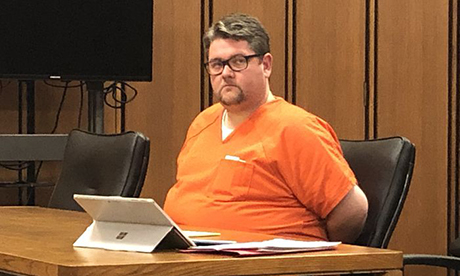An Ohio priest is to plead guilty to child pornography charges in a case highlighting the challenges the church faces ensuring technology accountability among clerics.
The priest was arrested after using hookup apps to meet and pay a male minor victim for sex.
He also acquired pornographic selfies from minors through manipulation and extortion via social media.
Fr Robert McWilliams, 40, was arrested in the parish where he had been a parochial vicar since his 2017 ordination. At the time of his arrest, police found child pornography on his computer, cell phone, and iPad.
A spokesman for the Cleveland diocese said that “since 2016, the Diocese of Cleveland has published Standards of Conduct for Ministry.”
The document includes a section on the Use of Social Media and all Forms of Electronic Communication. It warns ‘not to develop personal relationships with those whom they serve, especially minors.’
Deacon Bernard Nojadera, who directs the USCCB’s office of child and youth protection, said that the “digital world” is the “new frontier” for child safety protection.
Nojadera said that social media and location-based hookup apps present unique dangers from would-be abusers. They also add unique challenges for those who aim to protect minors.
“We have seen evidence and studies that those who would perpetrate these types of sins and crimes, if they’re not able to do it in Church settings, they’re going to go to the next means of meeting folks. That is through the Internet, through apps, and digital platforms for social media.”
“In reality, when you’re on the internet, there are no boundaries.”
“And in the digital world, it’s very easy to end up with two personalities, if you will. You could be a completely different individual on the Internet. Because who knows what’s going on in the confines of your room,” Nojadera said.
Nojadera urged that boundaries for all online engagement be clearly established in diocesan codes of conduct. There must be accountability among clerics around the use of technology.
He suggests that diocesan, parish, and school networks be monitored carefully to ensure that employees or clerics are not behaving inappropriately from Church-owned devices.
Sources
Additional reading
News category: World.




